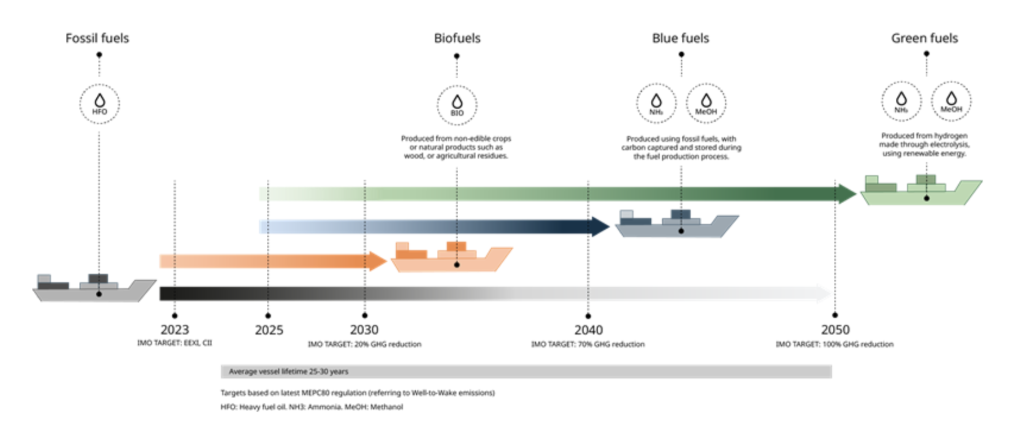According to Wärtsilä, sustainable shipping fuels are on track to cost the same as fossil fuels by 2035, driven by strict emissions policies. The report identifies the EU Emissions Trading Scheme and FuelEU Maritime Initiative as key drivers in making sustainable fuels more competitive.
Wärtsilä, a manufacturer of ship engines, a groundbreaking report from Wärtsilä has shed light on the future of sustainable shipping fuels, asserting they could attain cost parity with traditional fossil fuels by 2035. This pivotal shift is anticipated due to the adoption of decisive emissions policies such as carbon taxes and emissions limits. The EU Emissions Trading Scheme (ETS) and the FuelEU Maritime Initiative are expected to significantly increase the cost of using fossil fuels, effectively narrowing the cost disparity with sustainable fuels for the first time by 2035.
Chicken And Egg Challenge of Demand And Supply
Transporting 80% of global trade, the shipping industry is a crucial component of the world economy but also contributes 2% to global emissions, comparable to all Japan’s annual emissions. The International Maritime Organization (IMO) has set a goal for the industry to achieve net-zero emissions by 2050. Existing decarbonization solutions, including fuel efficiency measures, could reduce emissions by up to 27%. However, sustainable fuels are deemed essential to address the remaining 73%, overcoming the “chicken and egg” challenge of demand and supply scale-up.
Maritime Sector, unite!
Wärtsilä’s report emphasizes the necessity of a collaborative approach encompassing policy implementation, industry collaboration, and individual operator actions to expedite the availability and affordability of sustainable fuels. Policies such as the EU ETS and FEUM are highlighted as crucial for this transition, urging the adoption of a global industry standard for marine fuel carbon pricing and fostering global collaboration on innovation and infrastructure.
The maritime sector is encouraged to unite, pooling buying power and working across industries to establish a production and allocation framework for sustainable fuels. For individual operators, improving vessel efficiency is immediately beneficial, with today’s savings potentially multiplying in value by 2030.
Roadmap For the Industry
Roger Holm, President of Wärtsilä Marine, emphasized the collective effort required to achieve net zero in shipping by 2050, highlighting the role of sustainable fuels and the need for broad system change within the industry. According to mr. Holm, the Wärtsilä report offers a roadmap for the industry to scale sustainable fuels rapidly and affordably, aiming for complete decarbonization by mid-century.
This analysis, supported by Wärtsilä’s new modeling, presents a vision where sustainable shipping fuels not only become economically viable but also play a pivotal role in the industry’s transition towards a more sustainable and environmentally friendly future.
Read more:

